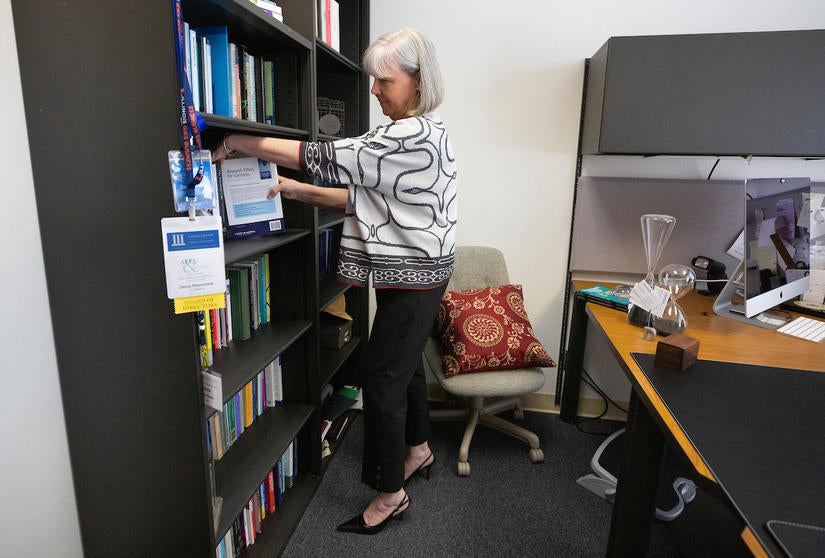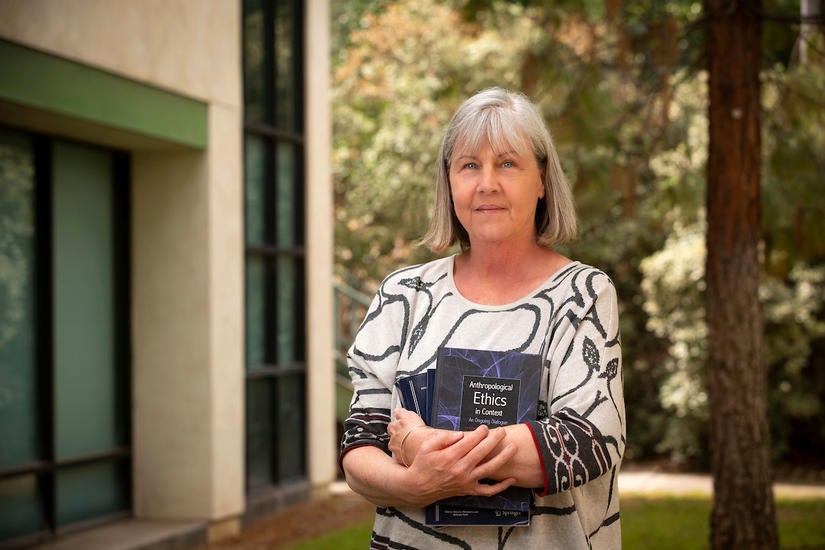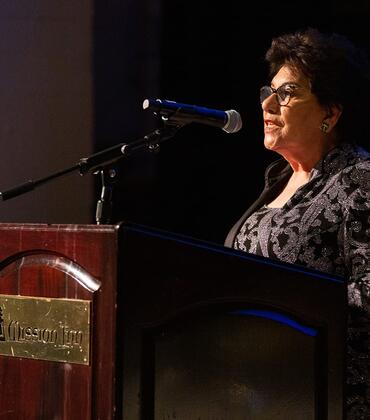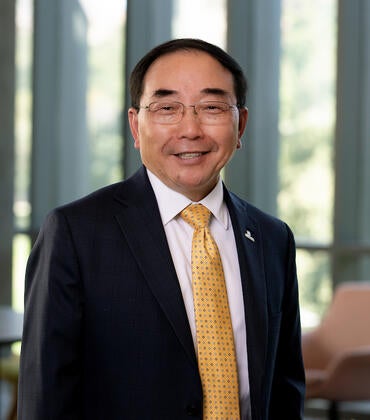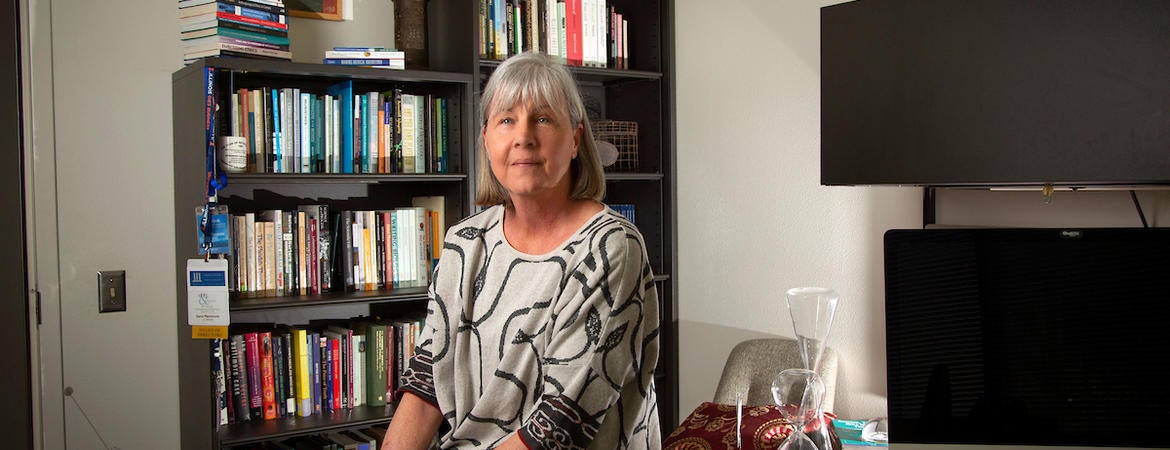
When it comes to research, ethics and integrity are at the forefront of Dena Plemmons’s mind.
Plemmons is the director for UCR’s Research Ethics Education Program, a resource for graduate students, postdoctoral scholars, and all UCR faculty. The program is one-of-a-kind across the UC system: While UCR is the first of two UC campuses to have a fully funded research ethics program, it is the only UC to have a full-time research ethics expert on site.
“The program here at UCR is situated in the Graduate Division, rather than in the Office of Research and Economic Development, which is evidence that UCR sees research ethics education as essential professional development rather than as primarily a compliance issue. Many other programs across the country are situated in compliance offices,” said Plemmons, an elected Fellow of the American Association for the Advancement of Science.
Plemmons has created conversation venues in both labs and classrooms. Topics include author contribution, how data is stored, and how to maintain consistency of data.
“We are a research university, we care about integrity and want to offer faculty, PIs, post-doctoral researchers, and graduate students the opportunity to learn and make research ethics an integral part of their work,” said Plemmons, who has been in her role at UCR since 2016. “This is a testament to UCRs understanding that ethical research is fundamental to good research.”
In 2015, the Graduate Division was awarded an Institutional Transformation grant from the Creating Cultures of Ethical STEM program of the National Science Foundation. Plemmons, along with other campus partners, developed curriculum to highlight good and ethical research practices in STEM fields at UCR. Other UC campus are also considering the curriculum and a modified version of this research is now being used for curriculum being designed for the Howard Hughes Medical Institute.
“The bottom line is that good research is ethical research. These are not separate things,” Plemmons said.
Having conversations with students and teaching them, among other things, how to have good collaborative relationships with other people and how to appropriately and fairly decide on manuscript authorship are discussions that should happen regularly, Plemmons said.
“There are other practices in research that are equally important, such as how we mentor, how we talk with the public not only about our specific research, but also how science works more generally, the realities of racial and gender disparity and inequity in both the conduct of research and access to, and application of the results of research,” Plemmons said.
In the recent era of COVID, talking about ethics is even more necessary. Risks come into play when research is rushed, often sacrificing rigor and careful review. How that tension is navigated is important to discuss, she said.
In the research world, topics such as who receives author credit and in what order can be sensitive, especially between graduate students and their professors.
“Authorship can be a taboo to bring up,” said Ian Wheeldon, assistant professor of chemical and environmental engineering who is also the director for UCR’s Center for Industrial Biotechnology. “Your name on a scientific paper is important; it’s how you make or break your career. Dena has been allowing for those conversations to happen in an open, safe environment.”
Wheeldon has participated in panel discussions hosted by Plemmons, and said he appreciates these safe spaces she has created for all students, but especially for first-generation students who might not know how to approach touchy subjects with their peers or professors.
“In academia things occur that are never formalized, such as authorships, letters of recommendation and expectations of those. It’s important for students to get a breakdown of how things work in academia,” Wheeldon said.
Plemmons obtained a doctorate degree from the University of North Carolina at Chapel Hill. Before coming to UCR, she was a research ethicist with UC San Diego’s Research Ethics Program. She is the editor-in-chief for the Springer-Nature journal Science and Engineering Ethics and is an editorial board member with the journal Accountability in Research. She is on the Board of Directors of the Association for Practical and Professional Ethics and has recently been nominated for chair-elect of the board.
“The campus is very fortunate to have Dr. Plemmons,” said Shaun Bowler, dean of the Graduate Division. “Not just because she is a nationally recognized expert who is very good at her work, but also because of what her work contributes to us as a campus. The research mission is a central mission of campus, and her work supports that by helping to make ethical standards a part of the everyday life and activity of research. We do well by doing good, and Dena’s work is an important contribution.”
